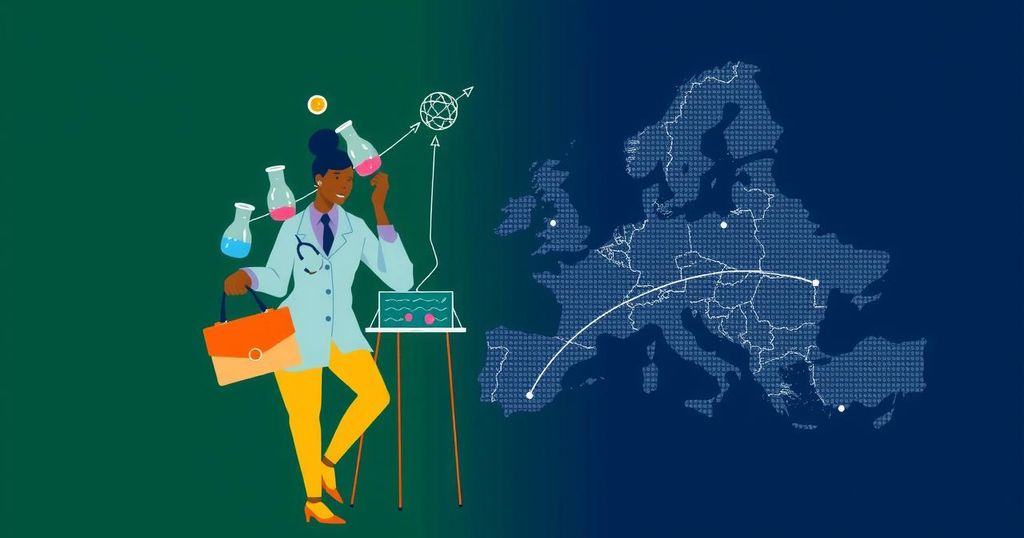Closing the Research Gap: Strategies for Enhancing Africa’s Scientific Capacity

Africa’s scientific research capacity is significantly lower than that of Europe, with only 20 researchers per million compared to 246. This gap results from funding deficiencies, lack of support for post-doctoral researchers, and systemic inequalities, particularly regarding women’s participation in research. Equitable international partnerships and local empowerment strategies are presented as essential for bolstering Africa’s health research capacity and addressing emerging health challenges effectively.
Africa faces a significant deficit in scientific research capacity, with only 20 researchers per million people, in stark contrast to Europe’s 246 per million. This underrepresentation stems from a number of interrelated factors, including limited funding for post-doctoral positions and insufficient support infrastructure for early-career researchers. Although there has been an increase in funding for PhD programs, many graduates encounter barriers to developing their research careers due to a lack of training, mentorship, and access to collaborative networks. Furthermore, linguistic barriers and systemic gender inequalities hinder the progress of female researchers and those from diverse linguistic backgrounds. To close this gap, it is imperative to bolster equitable international research partnerships that leverage local expertise and empower African researchers to engage meaningfully in global research efforts. Initiatives aimed at enhancing technical skills, leadership, and grant writing for emerging researchers are crucial. Furthermore, organizations like the Africa Research Excellence Fund (AREF) are advocating for capacity building and networking opportunities that prioritize locally led research efforts. Such strategies are vital for addressing the multifaceted challenges faced by researchers in Africa, thus fostering an environment where health research can thrive and contribute significantly to both local and global health outcomes.
The scientific research landscape in Africa is characterized by stark inequalities, particularly in health research capacity compared to other regions. The continent’s low researcher-per-capita ratio reflects systemic challenges in funding, training, and support, which must be addressed to improve health outcomes. Moreover, global challenges like climate change and pandemics underscore the urgent need for increased research capability to develop localized solutions to emerging health crises. The need for equitable partnerships and a focus on indigenous knowledge represents a strategic direction to enhance Africa’s research contribution.
In conclusion, addressing the research gap in Africa necessitates a concerted effort to enhance early-career support, invest in local training, and foster inclusive partnerships. By empowering African researchers and addressing structural inequities, the continent can significantly improve its health research capacity, ultimately contributing to better health outcomes domestically and globally. Additionally, prioritizing gender equity will ensure diverse voices and perspectives in the research landscape, leading to richer, more relevant scientific contributions.
Original Source: www.weforum.org






